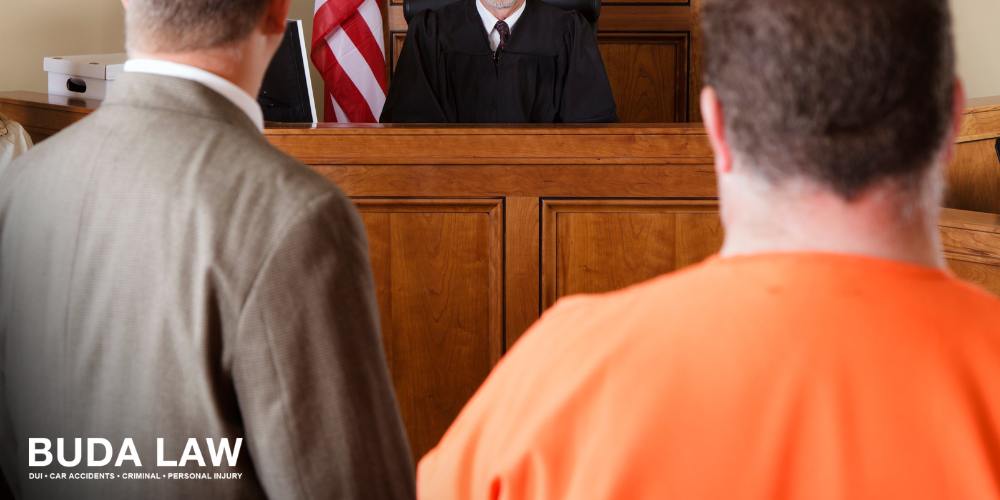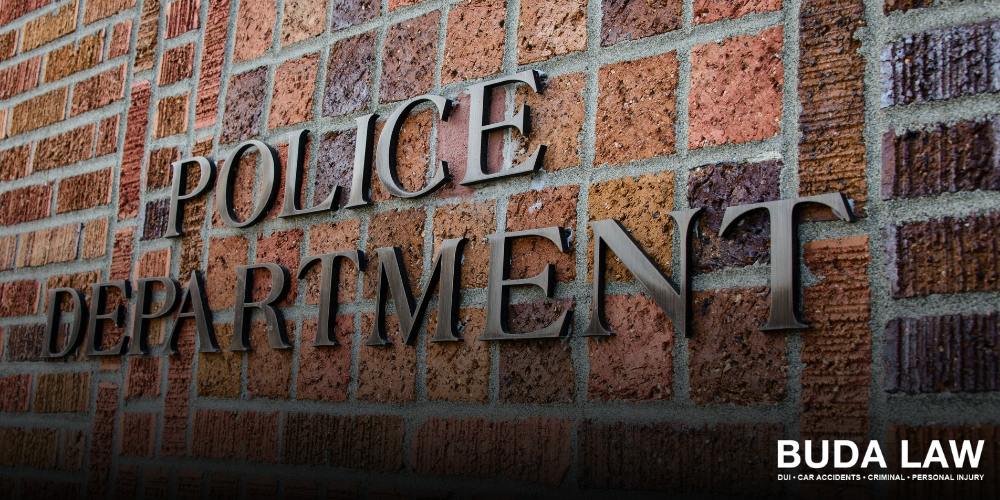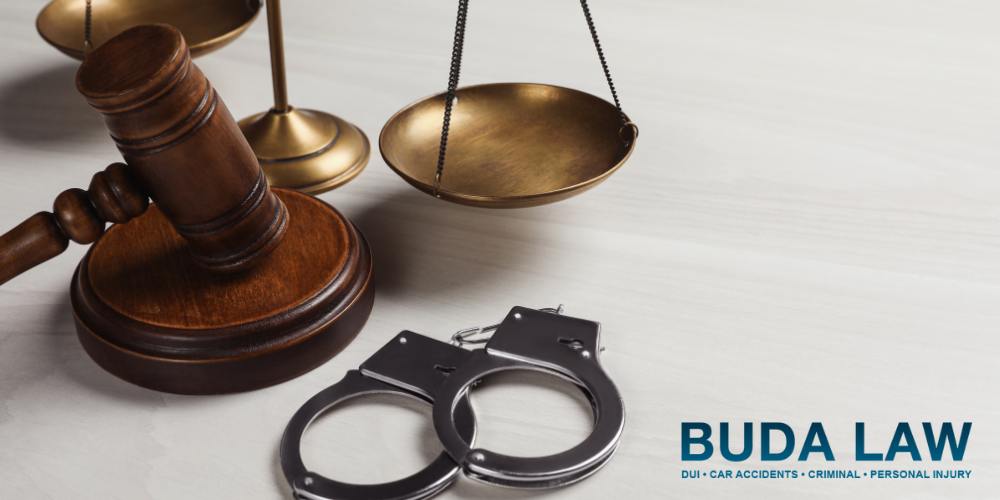
Table of Contents
What is Community Control in Florida?
Under Florida state law, penalties for criminal activity can take many forms. A perhaps lesser-known type of punishment available for Florida offenders is called community control.
As a non-incarcerative sentence, community control provides offenders with the opportunity to serve their jail or prison term at home. However, this doesn’t mean they still have all the freedoms of the next person. A community control sentence is highly restrictive, requiring more supervision and stricter conditions than other types of probation. If you’re serving time under a community control program in Florida, it is crucial to understand how it differs from probation or incarceration, as well as your rights and responsibilities under these programs. Violating the terms of community control can have severe consequences.
Experienced Tampa criminal attorney Andrew Buda of Buda Law has ample experience representing those facing criminal punishments in Florida. Whether you’re fighting for community control as an alternative to jail time or you’ve been accused of a community control violation, having the support of a knowledgeable Florida criminal defense attorney can be incredibly beneficial. Attorney Buda and his legal team are prepared to fight on your behalf. Call (813) 322-2832 today or reach out online to learn how Buda Law can help you.
Florida Probation and Community Control Laws
The laws surrounding Florida’s community control program (aka “house arrest” or “home confinement”) can be found under Chapter 948 of the Florida Statutes. Section 948.10 of this Chapter summarizes the structured program by stating:
“The Department of Corrections shall develop and administer a community control program. This program shall be rigidly structured and designed to accommodate offenders who, in the absence of such a program, would have been incarcerated in a jail or prison. The program shall focus on the provision of home confinement subject to an authorized level of limited freedom and special conditions that are commensurate with the seriousness of the crime. The program shall offer the courts and the Florida Commission on Offender Review an alternative, community-based method to punish an offender in lieu of incarceration and shall provide intensive supervision to closely monitor compliance with restrictions and special conditions, including, but not limited to, treatment or rehabilitative programs.”
What Does Community Control Mean?
Florida Statutes § 948.001 provides the definition of community control in Florida. The exact text reads:
“Community control means a form of intensive, supervised custody in the community, including surveillance on weekends and holidays, administered by officers with restricted caseloads. Community control is an individualized program in which the freedom of an offender is restricted within the community, home, or noninstitutional residential placement and specific sanctions are imposed and enforced.”
In other words, it is a strict form of house arrest where a person is closely monitored by a probation officer. Instead of going to jail, they must follow specific rules and stay at home or in approved places, with limited freedom and regular check-ins, even on weekends and holidays.
Community Control vs Probation
The state of Florida provides probationary or supervision services that allow convicted offenders to serve their sentences in their own communities. Both probation and community control may be offered as an alternative to incarceration, with terms set by the court. However, as long as they avoid breaking the law and follow the terms of their probation agreement, defendants on probation are permitted to leave their homes and travel, while those serving a community control sentence cannot.
Although it is technically a type of probation, community control differs significantly from typical supervised probation. Individuals sentenced with community control probation are more restricted and subject to intensive supervision and monitoring. While under community control supervision, defendants will be supervised daily, even on weekends and holidays. Defendants are restricted to their home and certain pre-arranged locations, such as work, school, treatment facilities, and community service. Additionally, they may only visit these pre-approved locations at pre-approved times.
The court will consider multiple factors, including the offender’s sentencing status, to determine if the offender is a good fit for such programs. Due to the strict conditions of community control, it is typically reserved for higher-risk offenders.
Whether you’ve been sentenced to probation or community control, understanding the conditions of your program and your rights as you participate in these programs is important. By consulting with a Florida probation violation defense attorney like Andrew Buda, you stand a better chance of avoiding unintentional violations.

Who May Be Sentenced to Community Control?
The Florida community control program targets felony offenders or offenders who have violated probation, parole, or conditional release. In particular, felony offenders with a criminal background (habitual offenders) or who have committed particularly serious offenses (such as violent felony offenders) are more likely to be sentenced to community control.
What are the Three Levels of Community Control?
Community supervision programs will differ from one offender to the next, as the terms of their community control will depend on their specific circumstances. There are several different terms, conditions, and sentencing guidelines for community control in Florida, but there are no three designated levels of community control. Rather, the three levels refer to probation, with community control being the third and most intensive level of probation.
The first level of probation is unsupervised probation. Also referred to as administrative probation, it is a form of non-contact, non-reporting supervision. Offenders granted unsupervised probation retain greater freedom, though this form of probation is rarely awarded.
The second level is supervised probation. Offenders on supervised probation are expected to regularly report to their correctional probation officer. Through the adoption of remote probation reporting policies, the relevant probation officer, the relevant county probation authority or entity, or the Department of Corrections may permit a probationer to report remotely. Probationers must also allow their probation officer to visit them at home or elsewhere, submit to random substance testing, and fulfill other probation conditions as determined by state law and the court.
Special types of supervised probation with unique probationary requirements may be offered depending on the offender’s circumstances or the nature of the crime committed. For example, a mental health court program or mental health probation may be offered for individuals struggling with mental health issues. This type of probation emphasizes mental health treatment and working with treatment providers, such as a mental health counselor, to focus on underlying mental health disorders. Similarly, defendants may be placed in a drug offender probation or postadjudicatory drug court program that provides them with individualized treatment plans or a sex offender probation program that seeks to supervise and treat sexual offenders.
The third level of probation in Florida is Community Supervision, also known as community control. As the most intense form of probation, supervision is constant, offenders must report to their community control officers more frequently, and offenders’ freedoms are severely restricted. Similar to probation, specialized forms of the program may be offered to certain types of offenders, such as sex offender community control that provides supervision and treatment plans for designated sexual offenders.
A judge’s decision to place an individual on any level of probation is determined by several factors, including the type of offense committed and the offender’s criminal record. Habitual or violent offenders are more likely to be sentenced to incarceration or much stricter probation.

Conditions of Community Control in Florida
Conditions for community control can differ from one case to another, depending on court decisions. However, common conditions for a community control sentence include the following:
- Confinement to your residence
- Limited travel, with pre-approval necessary for any travel
- Mandatory public service, such as through a community service program
- Supervision via an electronic monitoring device or system
- Strict curfews
- Mandatory employment or education
- Reporting to the community control officer as directed
- Allowing community control officer visits at home or elsewhere
- Submitting to random substance abuse testing
In addition to following the standard conditions of community control and probation, offenders may be subject to further conditions at the court’s discretion. For example, the court may decide to impose a period of incarceration or residential treatment as one of the conditions of community control, to be served at a Department of Corrections probation and restitution center, a public or privately owned community residential facility (excluding community correctional centers), or other approved facilities.
Specific rules also apply to certain types of offenders. For instance, in cases involving a felony offense committed by a juvenile, the juvenile is expected to participate in continuing education as a condition of their community control. Continuing education often takes place through a public adult education program or a dropout prevention program. Under some circumstances, juveniles may be allowed to continue their education through a regular educational school program.
Florida House Arrest Rules
Florida statute § 948.101 details the rules of house arrest under community control, which can increase in severity according to the circumstances of the case.
Level 1 House Arrest Florida
Level 1 is the strictest form of community control and is similar to full-time house arrest. The offender is confined to their home 24 hours a day, unless granted specific permission to leave. Permissions are usually limited to necessary occasions, such as for work, medical appointments, and court.
Movement is highly restricted and closely monitored by their supervising probation officer. Often, monitoring is accomplished with the use of an electronic monitoring device, such as a GPS ankle bracelet. All activities, including work, errands, and visits, must be pre-approved. Detailed schedules must be submitted to community control officers for approval in advance. The defendant can also expect frequent, unannounced home visits by Department of Corrections officers.
Violating the terms of Level 1 house arrest can result in revocation of the community control program or incarceration.
Level 2 House Arrest Florida
Level 2 is a less restrictive form of community control than Level 1. Although still under strict supervision, the offender may have more approved movement outside of their home. At this level, defendants must adhere to a structured schedule, but the schedule allows for more flexibility. This provides offenders with the opportunity to attend counseling, job training, and similar services.
Level 2 still requires offenders to regularly check in with supervising community control officers and allow for home visits. However, visits may be less frequent. Additionally, Level 2 community control may or may not include electronic monitoring, depending on the specifics of the case.
This level is suitable for offenders who have shown compliance or are transitioning from Level 1. Violations are taken seriously and can result in being returned to Level 1 or serving jail time.

What Happens if You Violate Community Control in Florida?
If you violate the terms of community control, your supervising officer will report the violation. A judge can then issue a warrant for your arrest so that you can be taken into custody. While the violation is addressed, you will likely be held without bond.
As with probation, community control violations can result in incarceration. If the court decides to revoke your participation in the program, you will be required to serve the remainder of your sentence in jail or prison. Alternatively, if you were under Level 2 community control supervision, your supervision can be elevated to Level 1.
If you’re facing accusations of violating community control, Buda Law can help. Our criminal defense attorneys use their legal experience and familiarity with Florida law to advocate for your rights. We will diligently defend you against accusations of community control violation by challenging the prosecution, providing evidence of your compliance, and demonstrating mitigating circumstances.
Common Florida Community Control Violations
Community control can be easily violated, even by accident, due to its particularly restrictive nature. In fact, few misdemeanor or felony offenders sentenced to community control complete their term without a violation. Some common community control violations include failing to adhere to curfews, unauthorized travel, or failing drug tests.
How a Tampa Criminal Defense Lawyer at Buda Law Can Help
Experienced legal representation is incredibly important for those serving community supervision sentences. In addition to defending you against accusations of violation, Buda Law can help you negotiate the terms of your community control or seek early termination of your sentence.
As an experienced misdemeanor and felony defense attorney in Florida, Andrew Buda has gained abundant experience in building strong defense cases tailored to his clients’ needs. Using personalized defense strategies, Attorney Buda will strive for a favorable outcome for your case. He can undermine the prosecution’s case by questioning the validity of the evidence and evaluating witness testimonies for inconsistencies or bias. By providing documented evidence or utilizing character witnesses, he can seek to prove your compliance with community control.
Early Termination of Community Control in Florida
Since community control is an alternative to incarceration, the sentence for community control can be equivalent to the maximum sentence you would have otherwise served in prison. Under certain circumstances, the judge may decide to modify or terminate the community control sentence early. Buda Law can help felony or misdemeanor offenders sentenced to community control seek early termination.
Defendants may be considered eligible for early termination if they meet the following conditions.
- The defendant has completed at least half his or her probation term;
- The defendant has met all probation conditions/has not been found in violation;
- The defendant’s sentence did not exclude early termination; or
- The defendant is not classified as a violent felony offender or a special concern.
Early termination requires filing for a motion with the court. An experienced lawyer can help you with the process of filing motions as well as represent you when you appear before the court, greatly improving your chances of having the motion for early termination granted.

Facing Probation or Community Control in Tampa, FL? Contact Buda Law for a Free Consultation ASAP
While living under the conditions of community control can be difficult, it is immensely preferable to prison. If you’ve been accused of violating your community control terms, your freedom is at risk. To avoid incarceration, you need the services of an experienced and knowledgeable criminal defense attorney. For professional felony and misdemeanor defense lawyers in Florida, contact Buda Law right away.
Andrew Buda of Buda Law understands both sides of the criminal justice sentence. Backed by his experience as a former prosecutor in Florida, Attorney Buda provides tough criminal defense in Tampa and the surrounding Pinellas and Hillsborough County areas.
If you’re looking for legal support in matters of probation or community control, don’t hesitate to call Buda Law. Our office is located in Tampa, FL. Call (813) 322-2832 or contact us online to schedule your free consultation today.
